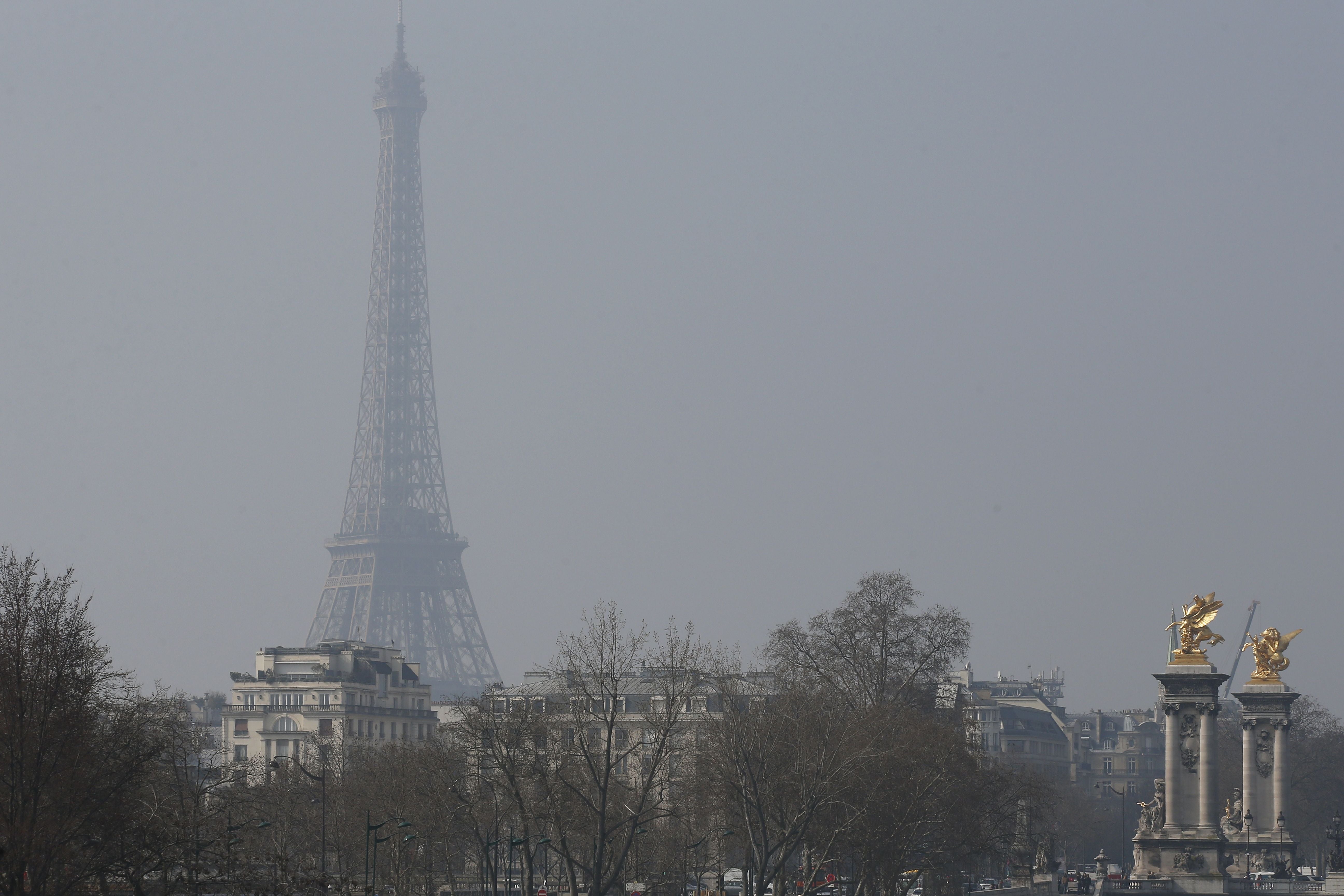How cities around the world are reacting to dangerous pollution levels
Restrictions on car journeys and warnings against exercise have been issued in cities such as Paris, Delhi and London during periods of poor air quality

Londoners have been told to avoid unnecessary car journeys, choose clean modes of transport and not to burn wood as the capital faced high levels of pollution.
Sadiq Khan said taking this action would be important to protect vulnerable people from poor air quality as he issued a pollution alert for Wednesday and Thursday,
The mayor of London also told people with heart and lung problems to avoid physical exertion during this time and urged everyone to avoid idling in cars and burning garden waste.
Advice is also issued by UK Air - part of the British government - when pollution levels are high, which includes telling members of the public to consider reducing activity, particularly outdoors, if they experience discomfort.
Stronger advice is issued for older people, who are told to reduce physical exertion, and at-risk groups due to health problems, who are told to reduce any strenuous exertion.
This advice affected Greater London on Thursday, when UK air said the region and five others in England was experiencing high levels of air pollution.
When levels are worse - or “very high” - UK Air tells all members of the public to reduce physical exertion - particularly outdoors - due to poor air quality.
When this happened to Londoners at the start of the year before the pollution forecast was downgraded, this messaging triggered a backlash from some, who wanted more concrete action to reduce pollution rather than suggestions on how to change behaviour to stay safe.
Other cities have taken action to change behaviour when hit by particularly bad pollution levels.
Paris has used a strategy where half of its cars are banned from coming into the city on a certain day.
In 2014, the city only allowed odd numbered cars in its centre on one day, which was due to switch to only even numbered on the next - but this was scrapped due to the first day’s success in reducing pollution.
The same happened in 2016, when Paris said it was facing the worst air pollution in a decade. Public transport was also made temporarily free in a bid to encourage people to ditch cars.
In 2015 in Italy, smog levels in Rome and Milan exceeded healthy levels for more than 30 days in a row, prompting both cities to take emergency action for three days.
Like Paris, the Italian capital allowed odd and even cars into the city on different days. Meanwhile Milan stopped all vehicles from entering between 10am and 4pm.
Two years later, Milan and Turin, northern Italian cities, also temporarily banned cars with certain emission standards after air pollution levels exceeded safe limits.
Delhi has also implemented the “odd-even” rule to allowing cars in the city in response to toxic smog in the Indian capital.
Last year, it went into a pollution-induced lockdown, with schools shut and residents told to work from home as a blanket of thick smog enveloped the city.
London’s mayor announced plans earlier this month to extend the city’s Ultra-Low Emission Zone (ULEZ) to the whole of Greater London, which he said would help to tackle both air pollution and the climate crisis.
Join our commenting forum
Join thought-provoking conversations, follow other Independent readers and see their replies
Comments
Bookmark popover
Removed from bookmarks